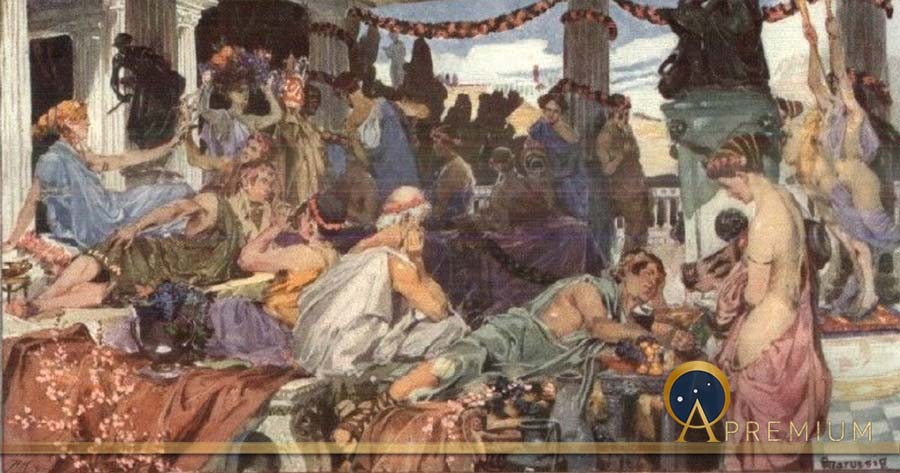Aspasia The Metiki Who Seduced And Confused Athens’ Powerful Men
In his writing on the Athenian Statesman Pericles, Plutarch (c. 46 – c. 119 AD), marvels at the "... great art or power this woman had, that she managed as she pleased the leading men of the state and gave the philosophers an opportunity to discuss her in great length and exalted terms." The woman referred to by Plutarch is Aspasia. In Plutarch's eyes, and perhaps in the eyes of many other men of his time, Aspasia had managed to do the unthinkable: she had seduced Pericles, the most powerful man in Athens, capturing both his affection and respect, as well as being revered by other men for her wit and intelligence.

Socrates teaching Pericles by Nicolas Guibal (1780) (CC BY-SA 2.0)
Aspasia The Intellectual Epicenter Of Athens
Apart from being held in high favor by Pericles for her rare political wisdom, Aspasia’s house was the intellectual center of Athens which attracted the most prominent writers and thinkers of the age, including the philosopher Socrates himself. Socrates would sometimes visit her with his disciples and intimate friends who in turn brought their wives to visit Aspasia and hear her speak. Aspasia’s ability as a conversationalist and adviser was also referred to in the writings of Plato, Xenophon and Aristophanes, among others. In short, Aspasia was known as much more than being the mistress of Pericles and an person of physical beauty. In Memorabilia, Socrates quotes Aspasia as saying that a matchmaker should tell the truth about the good characteristics of the man. Socrates mentions her again in Oeconomicus, by describing her as being extremely knowledgeable about household management and the economic partnership between husband and wife. In his Life of Pericles, Plutarch tells that Aspasia was so celebrated that Cyrus the Younger gave the name “Aspasia” to his favorite concubine, Milto of Phocaea. In Menexenus, Plato even claims that Aspasia instructed Socrates in rhetoric and authored Pericles' famed funeral oration herself.

Pericles attends the Lectures of Aspasia by Edward Francis Burney (18 – 19th century)Metropolitan Museum of Art (CC0)
Character Assassination Of Aspasia
At first glance, all these claims give the impression of not only Aspasia as a very impressive figure, but also her ability to evoke affection and admiration from these men. However, writings about Aspasia can also be read in a completely different context.
Like this Preview and want to read on? You can! JOIN US THERE ( with easy, instant access ) and see what you’re missing!! All Premium articles are available in full, with immediate access.
For the price of a cup of coffee, you get this and all the other great benefits at Ancient Origins Premium. And - each time you support AO Premium, you support independent thought and writing.
Martini Fisher is an Ancient Historian and author of many books, including ”Time Maps: Gods, Kings and Prophets” | Check out MartiniFisher.com
Top Image: Aspasia postcard by unknown artist (Public Domain)

















